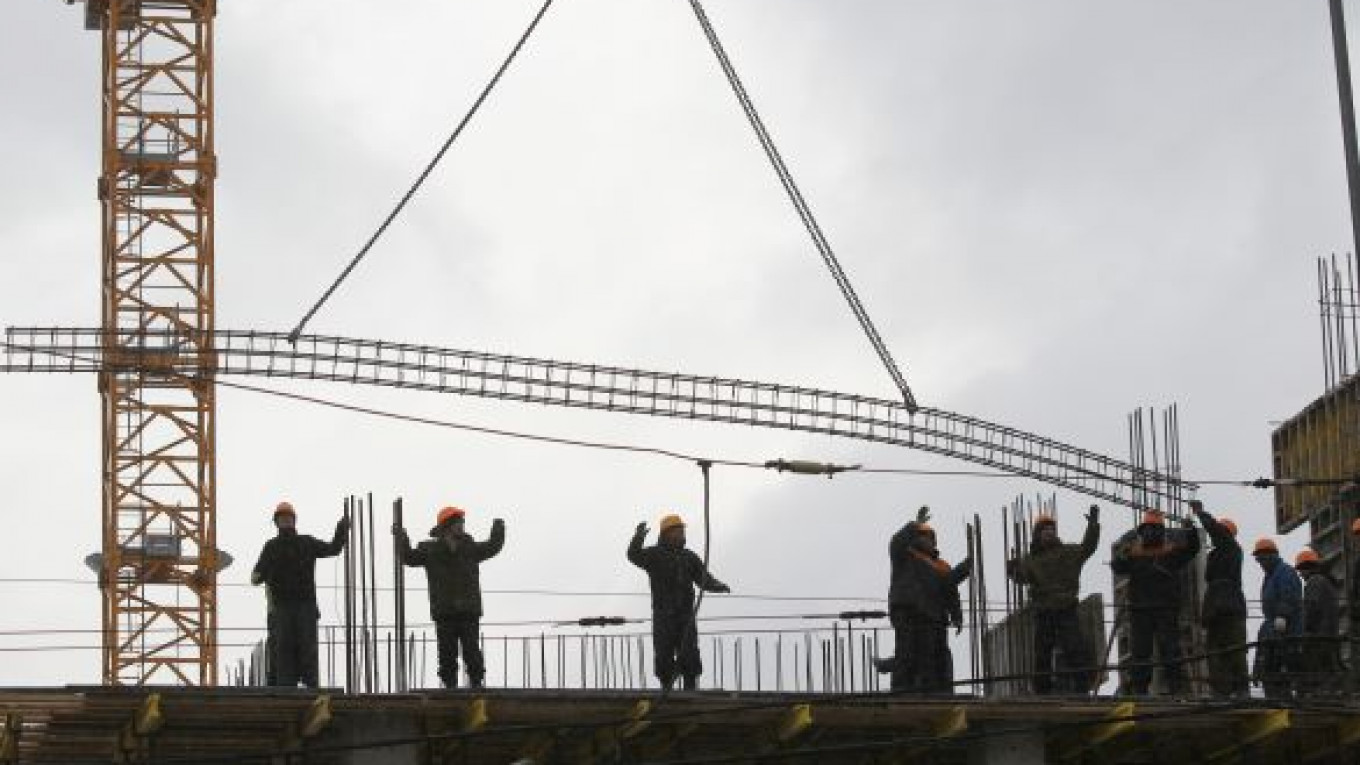Two road maps to improve the country's investment climate are ready for review by Prime Minister and President-elect Vladimir Putin.
The plans addressing the construction sector and energy infrastructure — which are in line with Putin's statement to the Duma on April 11 that the government will embark on 100 steps necessary to increase Russia's Doing Business rating by the World Bank — were formulated by working groups of businessmen, under the auspices of the Strategic Initiatives Agency.
Russia occupies 178th place out of 183 for getting construction permits, but the road map promises to bring the country to 34th place by 2020, with the total number of permission processes dropping from 51 to 11 and the average amount of time spent on obtaining them going from 423 days to 56 days. The plan includes a proposal to move from the need to get permission in advance of building to one in which builders issue a notification and then start.
In terms of energy access, Russia is in last place, but the intention is to move up to position No. 20 by 2020. As of now, connections to electricity and gas networks average 281 days, 10 separate steps and 1,852 percent of per capita income. By 2020 the road map foresees reducing this to 40 days, five steps and 25 percent per capita income.
A spokesman for a Moscow construction company said the current procedure works as follows: those running the networks say the soonest possible time for a connection is two years from now; but if an "agreement" is made, the bribes paid — costing from 10 percent to 100 percent of the cost of connection — can reach 10 million rubles ($340,000).
The construction working group was led by Barkli chairman Leonid Kazinets and included representatives from Sistema Hals, SU-155 and MR Group. The energy discussion was lead by Siberian Generating Company chief Sergei Mironosetsky and included representatives from En+, MRSK and the retail chain Magnit.
Though they were joined by officials from the Economic Development Ministry, the Federal Anti-Monopoly Service, the Regional Development Ministry and the government administration, one of the businessmen confirmed that there were no limitations placed on their work. "We wrote what we thought," he said.
The road maps could be confirmed by Putin as early as May 3, or shortly after May 7, via executive order.
A Message from The Moscow Times:
Dear readers,
We are facing unprecedented challenges. Russia's Prosecutor General's Office has designated The Moscow Times as an "undesirable" organization, criminalizing our work and putting our staff at risk of prosecution. This follows our earlier unjust labeling as a "foreign agent."
These actions are direct attempts to silence independent journalism in Russia. The authorities claim our work "discredits the decisions of the Russian leadership." We see things differently: we strive to provide accurate, unbiased reporting on Russia.
We, the journalists of The Moscow Times, refuse to be silenced. But to continue our work, we need your help.
Your support, no matter how small, makes a world of difference. If you can, please support us monthly starting from just $2. It's quick to set up, and every contribution makes a significant impact.
By supporting The Moscow Times, you're defending open, independent journalism in the face of repression. Thank you for standing with us.
Remind me later.






